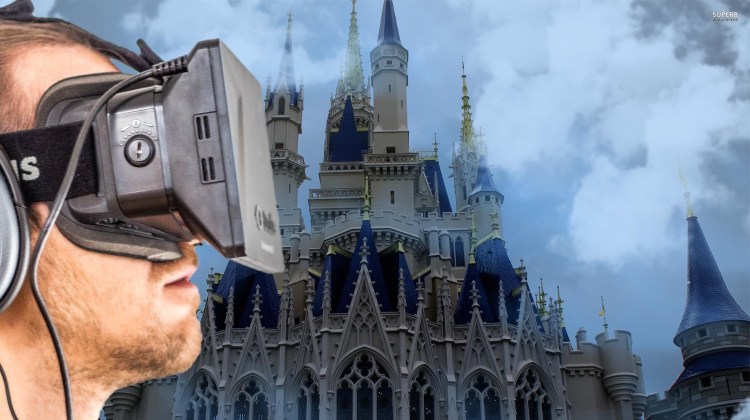I love Space Mountain, but I’m a thousand miles from the nearest Disney theme park. Soon, that distance might not pose a problem.
Disney is considering showcasing its theme parks in head-mounted virtual reality displays like the Oculus Rift. That’s according to the company’s Imagineering creative technical design lead Bei Yang, who didn’t have any concrete examples of how this would work. He’s the guy in charge of figuring out how to get VR concepts working in the parks (which we talk about in-depth here), but we wanted to know if he was OK with things going the other way.
As it turns out, he’s confident that the real Disneyland and a virtual re-creation can coexist.
“If you think about the way we approach technology in general, The Walt Disney Company is about creating content,” Yang told GamesBeat. “It’s about creating connections among friends and family through stories. We can do that through any number of mediums. VR is just one of those mediums.”
Yang points out that Disney never gave up any medium just because something new comes around. The company still publishes books now that we have TV. It still makes movies now that we have games. And he expects that trend will continue.
“With VR — yes — you may be able to replace some of the experiences you can get at the parks,” he said. “But ultimately, we see the park as something that is different. We can leverage VR technology in those, but at the same time, watching a movie at home isn’t the same as watching a movie in the theater.”
It is still really early for consumer VR. Valve, the company that runs the PC game-distribution platform Steam, is going to release its headset later this year in partnership with HTC. Sony’s PlayStation 4-compatible device Morpheus is due out next year. Oculus hasn’t specified a date at all. So the potential market for a virtual Disney is still small, but it is also the kind of VR experience that could potentially convince people to pick up the necessary hardware.
As for Yang’s primary job, he is hoping to bring more simulated experiences into Disney parks, but those are more likely to come in the form of projected video experiences rather than head-mounted displays. He thinks that people will always want to come and try these very unique attractions in person, so he’s not interested in preventing people from attending simulated Disneyland.
“So yes, we are thinking about bringing the parks into VR,” said Yang. “But in the end, we’re really just excited that there is another paint brush that we can use to tell our stories.”
VentureBeat's mission is to be a digital town square for technical decision-makers to gain knowledge about transformative enterprise technology and transact. Learn More

